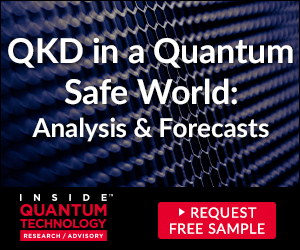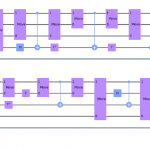IQT News Briefs June 6, 2024: Q-CTRL Transforms Quantum Advantage Outlook, Breaking Previous Records for Optimization Problems and Outperforming Competitive Technologies • QuEra & QuPerfect Announce Collaboration to Propel Simulations of Quantum Error Correction and Logical Quantum Algorithms • Korea Times reports “KT Completes Commercialization Ready Post-Quantum Cryptography Solution” • “In the Quantum Future, Expect the Unexpected”

News Briefs:
Q-CTRL Transforms Quantum Advantage Outlook, Breaking Previous Records for Optimization Problems and Outperforming Competitive Technologies
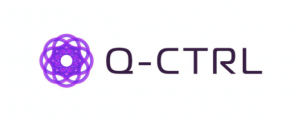 Q-CTRL announced newly published results on June 5 that demonstrate a boost of more than 4X in the size of an optimization problem that can be accurately solved, and show for the first time that a utility-scale IBM quantum computer can outperform competitive annealer and trapped ion technologies. The recent results reset expectations for when and how quantum advantage may arrive.
Q-CTRL announced newly published results on June 5 that demonstrate a boost of more than 4X in the size of an optimization problem that can be accurately solved, and show for the first time that a utility-scale IBM quantum computer can outperform competitive annealer and trapped ion technologies. The recent results reset expectations for when and how quantum advantage may arrive.
Previous third-party benchmark quantum optimization experiments have indicated that, despite their promise, gate-based quantum computers have struggled to live up to their potential because of hardware errors. In previous tests of optimization algorithms, the outputs of the gate-based quantum computers were little different than random outputs or provided modest benefits under limited circumstances.
As a result, an alternative architecture known as a quantum annealer was believed – and shown in experiments – to be the preferred choice for exploring industrially relevant optimization problems. Today’s quantum computers were thought to be far away from being able to solve quantum optimization problems that matter to industry.
Q-CTRL’s recent results upend this broadly accepted industry narrative by addressing the error challenge. Their methods combine innovations in the problem’s hardware execution with the company’s performance-management infrastructure software run on IBM’s utility-scale quantum computers. This combination delivered improved performance previously limited by errors with no changes to the hardware.
QuEra & QuPerfect Announce Collaboration to Propel Simulations of Quantum Error Correction and Logical Quantum Algorithms
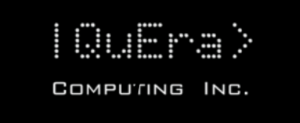 QPerfect, a pioneer of advanced solutions to accelerate practical quantum computing, and QuEra Computing, a global leader in neutral-atom quantum computing, announced on June 5 a collaboration aimed at the development and evaluation of tensor network methods for accurate modeling of quantum error correction.
QPerfect, a pioneer of advanced solutions to accelerate practical quantum computing, and QuEra Computing, a global leader in neutral-atom quantum computing, announced on June 5 a collaboration aimed at the development and evaluation of tensor network methods for accurate modeling of quantum error correction.
The QPerfect-QuEra collaboration is set to model and capture effects that are out of reach using standard simulation techniques. The partnership will leverage QPerfect’s MIMIQ, a powerful virtual quantum computer and quantum simulation framework, to conduct high-fidelity, large-scale simulations of logical quantum algorithms. This will assist QuEra in evaluating error-corrected algorithms in the presence of realistic error channels and non-Clifford operations for their atomic quantum computers.
A spinoff from the University of Strasbourg and the National French Research Agency CNRS, QPerfect brings its expertise in fast, accurate and large-scale simulations of quantum computers, many-body quantum systems and advanced quantum error correction. QuEra brings its extensive experience in quantum error correction algorithms and realistic noise models, derived from operating the world’s first publicly accessible neutral atom computing platform.
In Other News: Korea IT Times reports “KT Completes Commercialization Ready Post-Quantum Cryptography Solution”
 KT announced on June 5th that it has completed preparations for the commercialization of post-quantum cryptography (PQC) technology.
KT announced on June 5th that it has completed preparations for the commercialization of post-quantum cryptography (PQC) technology.
KT independently developed the standalone model of the QENC (Quantum ENCrytor), a quantum encryption communication device, and designed the PQC solution service through technology transfer. The KT PQC solution can utilize both encryption keys generated by a quantum key distribution (QKD) device and keys generated by the PQC algorithm, enabling the creation of a hybrid quantum security network.
The external key interface of KT’s QENC is designed in compliance with the international standard ETSI GS QKD 014 based on open interfaces. Therefore, using an external PQC key is possible by simply connecting to the PQC server without needing to change the encryption device.
In South Korea, public institutions need to pass a security suitability verification to use quantum encryption communication devices. KT’s QENC equipment submitted for a security function confirmation test last May is expected to receive the security function confirmation certificate by July, allowing it to be utilized by all domestic institutions
In Other News: Wall Street Journal’s “In the Quantum Future, Expect the Unexpected”
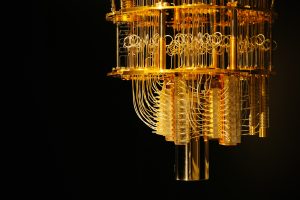 Quantum computer capabilities have the potential to address specific categories of problems that we already know classical computers cannot solve efficiently. Connecting experts in quantum computing with industry leaders can help take us from quantum utility today to quantum advantage. It is time to look at quantum computers as tools for scientific discovery, according to Katie Pizzolato of Deloitte in her recent contributed article to the WSJ.
Quantum computer capabilities have the potential to address specific categories of problems that we already know classical computers cannot solve efficiently. Connecting experts in quantum computing with industry leaders can help take us from quantum utility today to quantum advantage. It is time to look at quantum computers as tools for scientific discovery, according to Katie Pizzolato of Deloitte in her recent contributed article to the WSJ.















